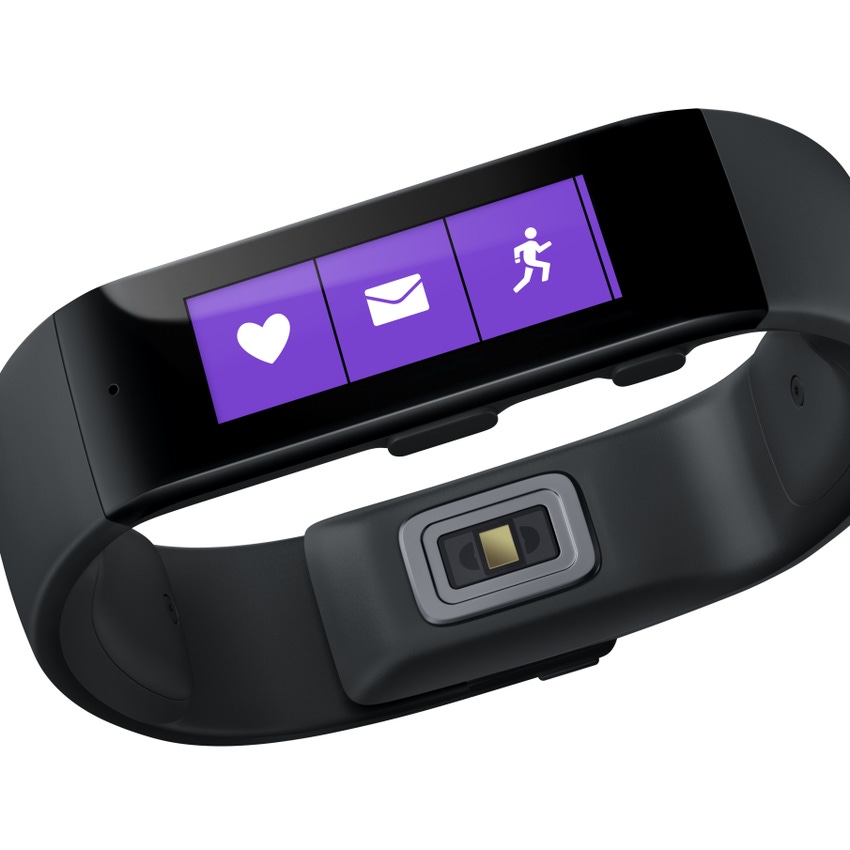Microsoft begins retreat from Windows Phone with platform-agnostic Microsoft Health
Software giant Microsoft has formally entered the wearables game with the launch of its Microsoft Health platform and accompanying Microsoft Band fitness band. But the real significance behind this move is Microsoft’s decision to make both products platform-agnostic, implying Microsoft has decided to no longer pin its mobile hopes on Windows Phone.
October 30, 2014

Software giant Microsoft has formally entered the wearables game with the launch of its Microsoft Health platform and accompanying Microsoft Band fitness band. But the real significance behind this move is Microsoft’s decision to make both products platform-agnostic, implying Microsoft has decided to no longer pin its mobile hopes on Windows Phone.
Microsoft Health is a cloud fitness platform that allows users to store all their health data, and presumably advertise their fitness achievements incessantly on social media. The Microsoft Band has all kinds of sensors, including some tech borrowed from the Kinect motion sensor, to keep an eye on your well-being and record it. Combining the two with clever algorithms allows the user to be constantly nagged towards improving their lifestyle and thus, theoretically, their quality of life.
While there is a rudimentary display on the Band, fitness bands ideally need to sync with smartphones and other devices so users can crunch the data and optimise their fitness regimes. The old Microsoft would have made this a proprietary platform, compatible only with Windows Phone or Windows devices. But right now that would exclude over 95% of the market, so Microsoft appears to have abandoned the wishful thinking that has accompanied its mobile efforts since the launch of iOS and Android, and got real.
“Available on Windows Phone, iOS and Android, Microsoft Health’s open cloud platform stores, organizes and learns from your fitness information in order to give specific prompts to improve your fitness,” announced Microsoft’s lengthy press release/blog on the matter.
It has been clear for some time that the mobile OS market is a two-horse race, with iOS at the premium end and Android accounting for the rest. To be a viable third player in this market you need to convince vendors and consumers to choose your platform over Android. Since Google doesn’t charge for Android, Microsoft’s software licensing model is at a major disadvantage, and consumers don’t seem to have warmed to Windows Phone.
When Microsoft acquired Windows Phone’s largest licensee in the form of Nokia devices, it was effectively giving up on deriving significant licensing revenue from Windows Phone. The assumption was that Nokia would become Microsoft’s hero products for the platform, much as it has tried to do for tablets with Surface.
But if Microsoft isn’t going to make any money directly from Windows Phone, what’s the point in promoting it at all? It has long been clear to this writer that Microsoft needs to find a new business model for mobile, with hardware margin dominated by Apple and ad revenue by Google. With licensing apparently not an option, Microsoft’s best chance would appear to be selling software (such as Office) and services (such as Skype or cloud storage) to the entire mobile market. This, of course, requires the products to be platform-agnostic.
So the launch of Microsoft Health likely marks the formal commencement for a slow retreat from putting Windows Phone at the front of Microsoft’s mobile strategy. There has been little sign the software giant plans to significantly follow through on its Nokia investment and its crude attempts to impose the Metro interface on PC users indicates its desperation to create a unified OS for all devices.
It wouldn’t be surprising to see Windows Phone disappear as a brand when Windows 10 is formally launched, and for Microsoft to use those Windows-based mobile devices it continues to manufacture primarily as showcases for its mobile products. At least that would be the sensible thing to do.
About the Author(s)
You May Also Like








.png?width=300&auto=webp&quality=80&disable=upscale)


_1.jpg?width=300&auto=webp&quality=80&disable=upscale)


.png?width=800&auto=webp&quality=80&disable=upscale)